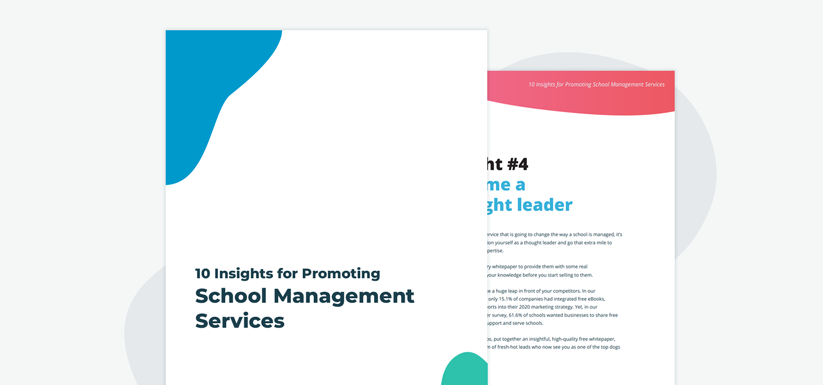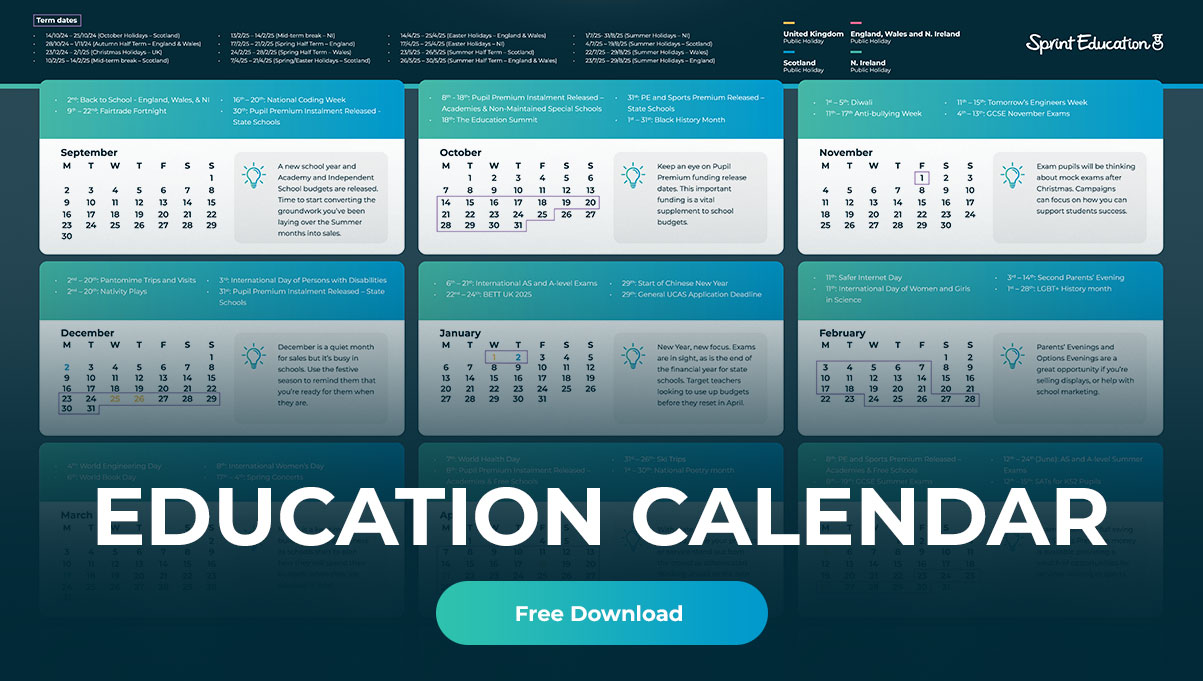The Sprint Education edu-news roundup - the topics on teachers’ minds
The Sprint Education edu-news roundup - the topics on teachers’ minds
The stories that are influencing schools’ spending habits and impacting your business right now.
The stories that are influencing schools’ spending habits and impacting your business right now.
Well, here we go; time to sit back and enjoy #dogsatpollingstations today- the pinnacle of twitter content. We covered the election in last month’s edu-news roundup though. So, other than an important reminder about our very favourite hashtag, that’s it on the election front from us!
Let’s crack on with everything else happening in edu-news at the moment.
PISA test results released
The latest results from the Programme for International Student Assessment (PISA) were released at the beginning of the month. The worldwide study by the Organisation for Economic Cooperation and Development evaluates educational systems every three years by measuring the performance of 15-year-olds in Maths, Science, and Reading.
The UK’s most recent results showed overall improvement with Education Secretary Gavin Williamson declaring that the results reflected the success of the changes made to education policy by recent Conservative governments including "more rigorous primary school assessments".
The tests also recorded results about wellbeing. The study found that just 53% of UK students claim they are satisfied with their lives, amongst the lowest recorded.
Debate amongst academics and educators about the value of the assessments from an organisation created to stimulate economic progress are set to continue, whilst the results of the tests continue to impact education policy around the world.
£388m a week - the cost of poor Maths skills
The independent UK charity National Numeracy released a report at the end of November drawing attention to the millions of adults who lack the basic numeracy skills required for everyday life. The economic cost of this skills gap has been estimated by the charity as £388m a week.
The chief executive of National Numeracy identified a lack of confidence with numbers as the number one barrier to improvement. Although the charity has not made any recommendations to tackle this skills gap in relation to schools and teaching, as the report relates to an adult skills gap, the report was publicised on tes.com and will likely be a talking point for Maths teachers.
Two in five small schools fear closure
Headteachers are warning that small schools in rural communities across the country are at risk. A survey of 365 small-school leaders and NAHT members concluded that two in five fear closure due to the DfE’s funding formula.
The bulk of school funding is awarded on a per-pupil basis. The costs associated with running a school before the volume of pupils is considered puts small schools at a serious disadvantage.
Without the provision of small rural schools, pupils could face travelling miles each day. Thomas Moore’s article on Schoolsweek.co.uk offers an excellent break down of the figures relating to his own school’s experience, demonstrating the realities of the funding crisis for small schools.
Survey finds nearly half of schools unfit for purpose
A recent survey conducted by the National Education Union found that 47% of members reported the educational institutes that they worked in were not fit for purpose.
Schools across the country continue to struggle with buildings that are disrupting learning due to disrepair. Without sufficient funds to resolve problems with buildings, schools are resorting to quick patch-up jobs to keep classrooms open, resulting in unsafe learning environments for both teachers and students.
The recent announcement by the Government of the Condition Improvement Fund, a £400 million fund for school and college buildings, has been roundly criticised for its application criteria. It has also been deemed by Dr Mary Bousted, joint General Secretary of the National Education Union, as “too little, too late”.
So, what does all this mean for your edu-marketing?
- There is still a huge focus on improving results in core academic subjects. If you have statistics or case studies that prove the efficacy of your product or service, highlight them wherever possible.
- Maths is high on the agenda. Solutions that apply Maths in a real-world context to engage and boost confidence will be of interest to teachers looking for new ways to engage students.
- Funding issues continue to dominate school leaders’ minds. Consider your message carefully. How can your business improve their situation? An understanding of the issues schools are currently facing and how the funding formula impacts different schools will help you approach them in an appropriate and sensitive way.
Tags
Education News
Marketing to Education
Marketing to Schools
Marketing to Teachers
Similar Articles


Evolve Your Education Marketing with Advanced Email Reports
Embrace the next evolution for email marketing – Campaign Analysis that drills down into the data that matters


Marketing School Management Services to Schools
Learn 10 game-changing insights especially for school management service providers to enhance your education marketing campaigns when emailing schools.


Expert marketing to schools support and solutions
Expert marketing to schools solutions
Email Head Teachers, Teachers, and Staff Inboxes
Email teachers and staff inboxes
Sell More to UK and Global Schools and Colleges
Sell more to schools and colleges

































